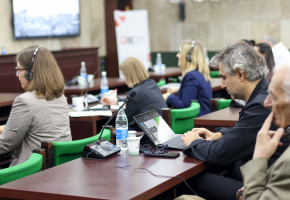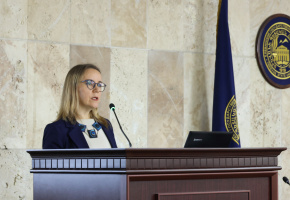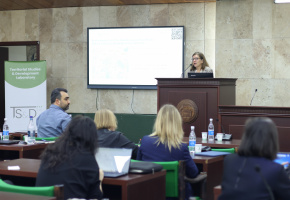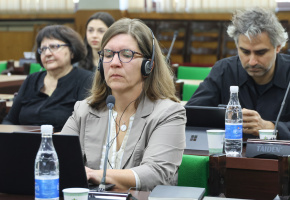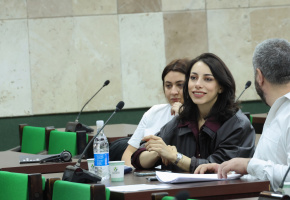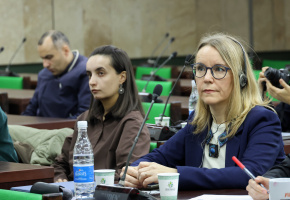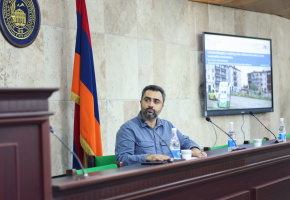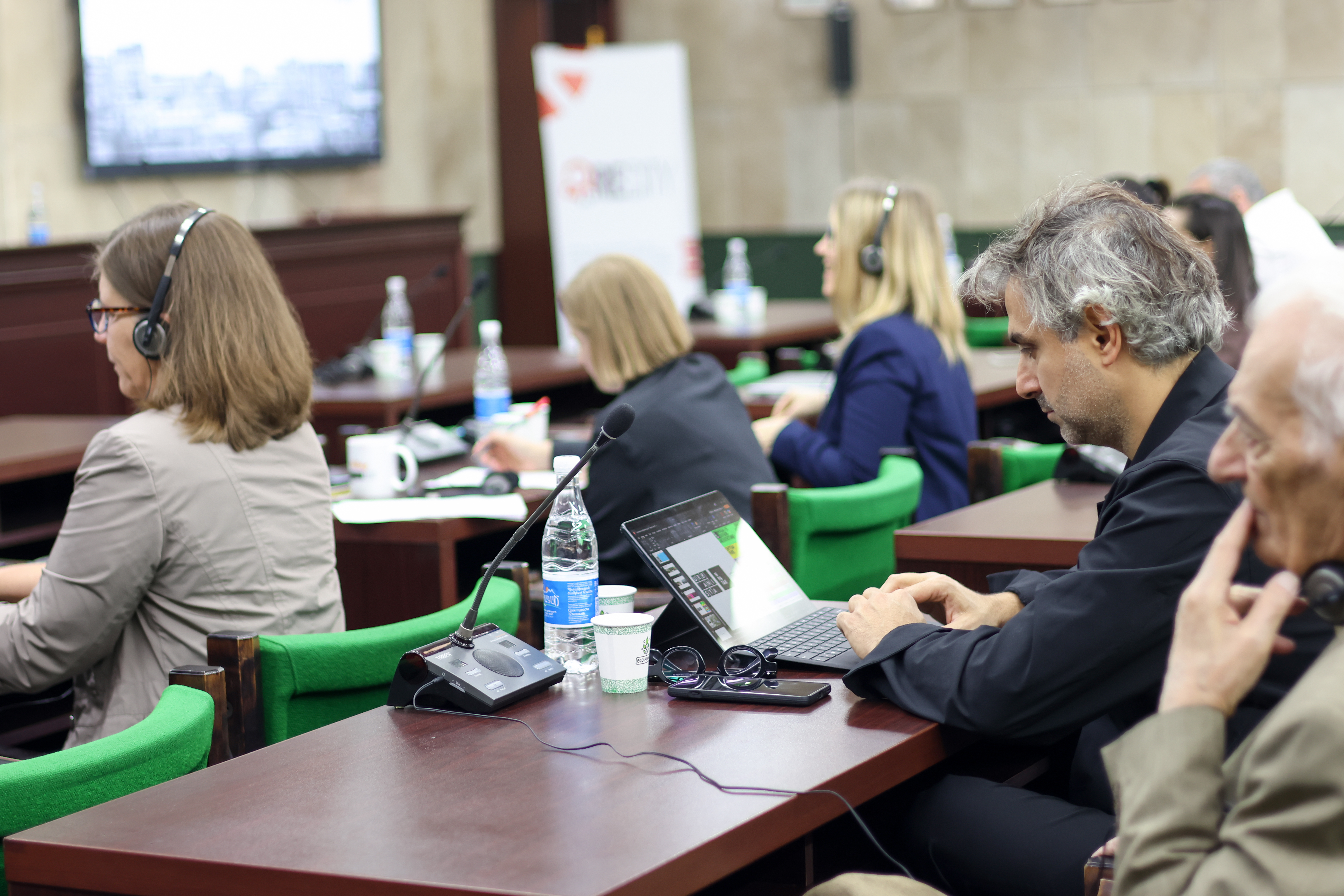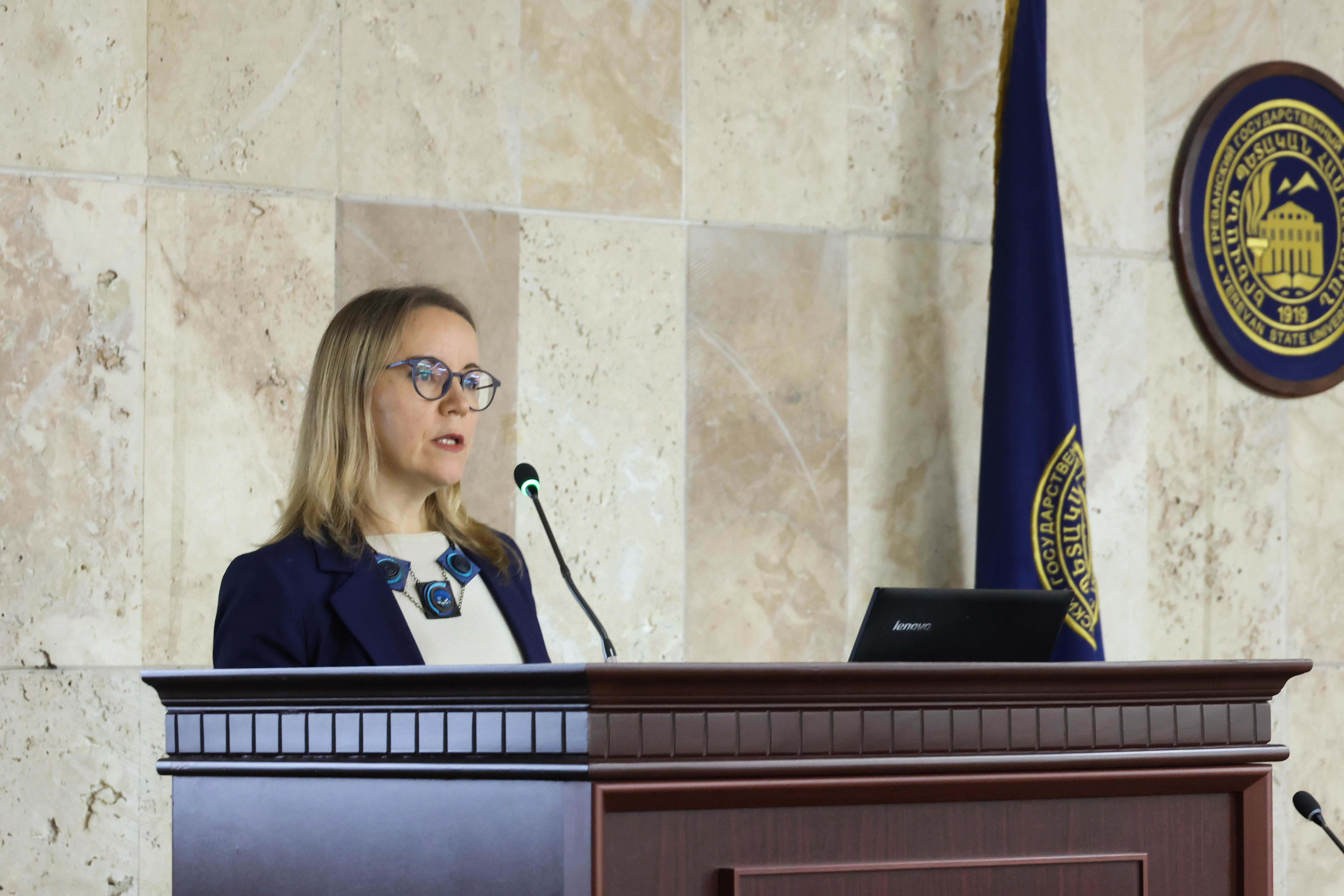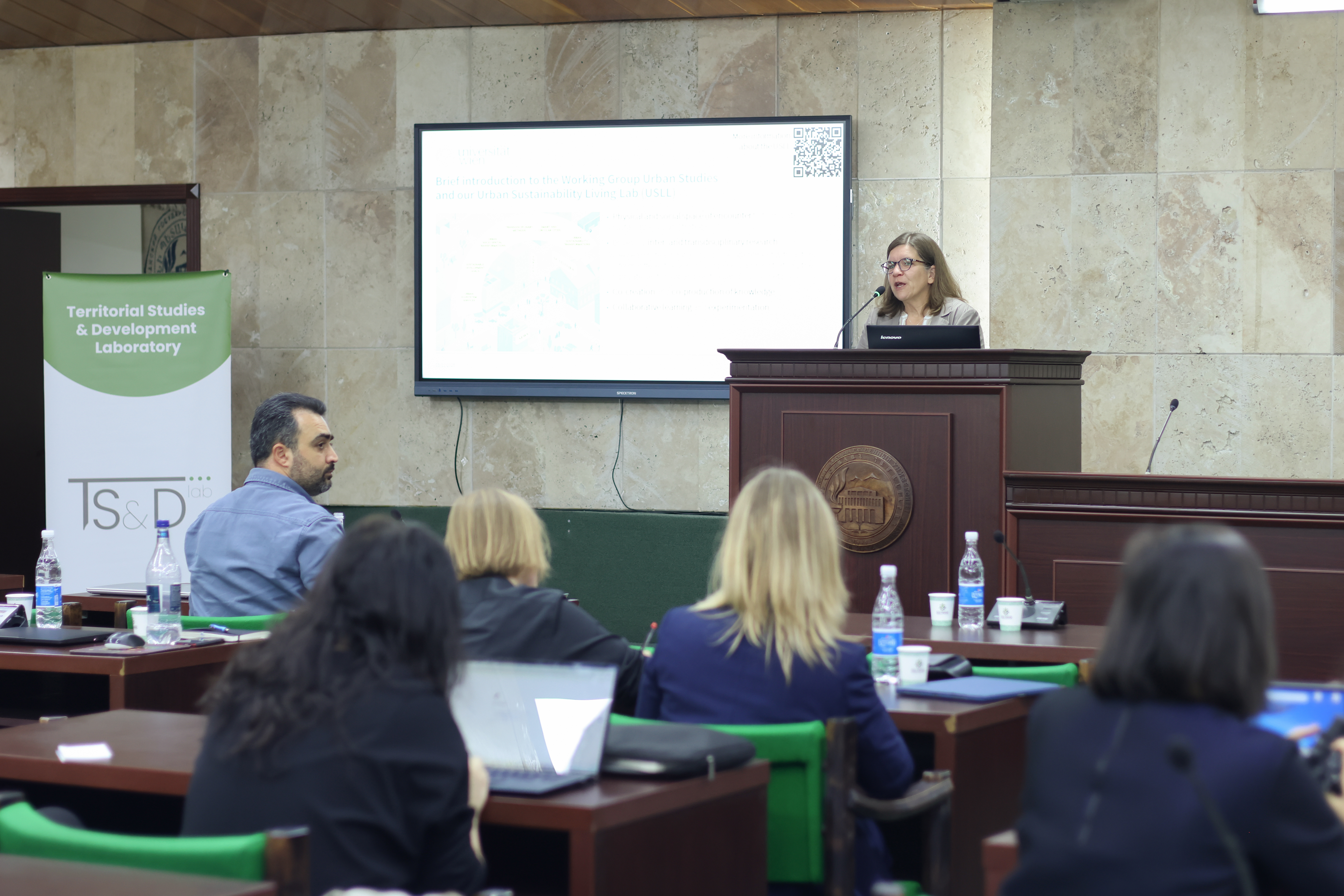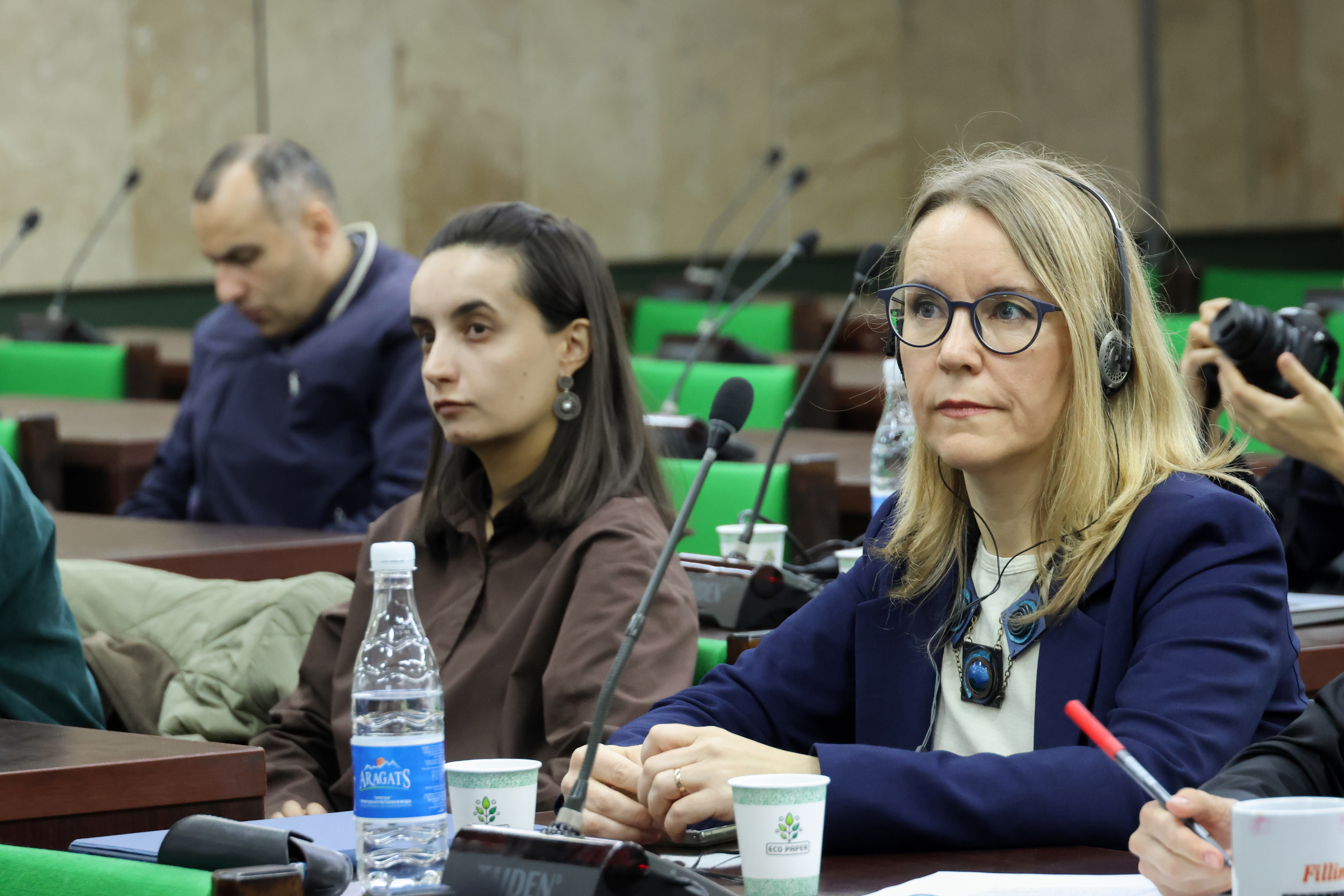November 03, 2025 | 14:43
Conferences
Research
International cooperation
How to build cities that adapt to new realities: "Urban Resilience and Built Heritage" seminar brings together researchers
Yerevan State University hosted the international seminar "Urban Resilience and Built Heritage", which focused on understanding urban resilience within the context of post-Soviet and global urban transformations.
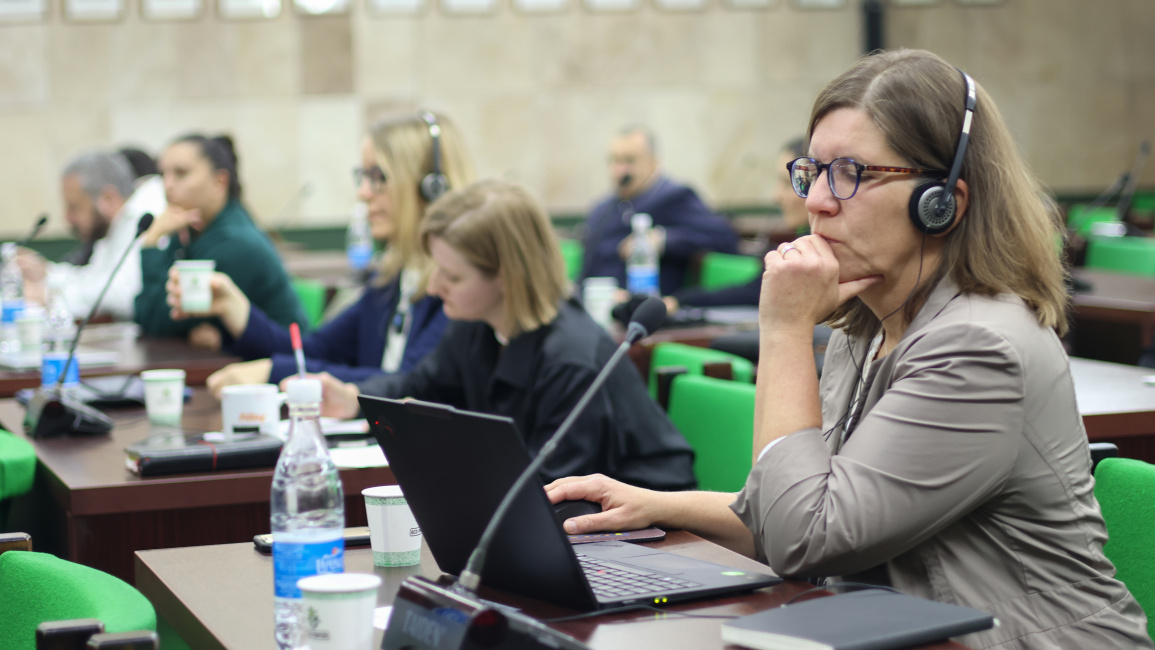
The international seminar brought together academic researchers and field practitioners to discuss theoretical frameworks for analyzing resilience, reinterpretations of Soviet architectural legacies, community adaptation strategies, and the everyday practices through which people maintain and renew urban environments.
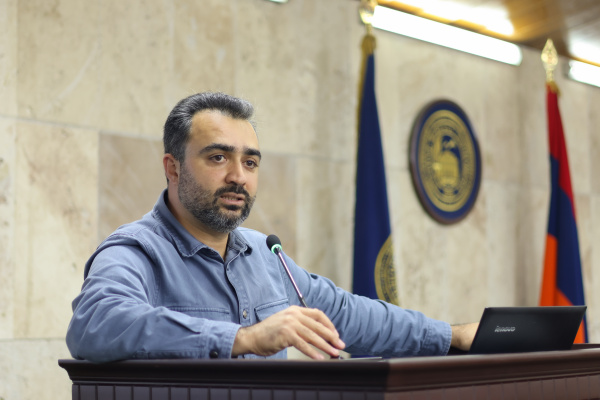
Harutyun Vermishyan, Associate Professor and PhD in Sociology, Head of the Chair of Theory and History of Sociology at YSU, noted that the seminar marks the beginning of the second year of activities of the newly established Laboratory for Territorial Studies and Development. He pointed out that during the previous event—dedicated to the centennial of Yerevan's Master Plan—an interdisciplinary discussion took place, addressing the presented issues from urban planning, political, and ideological perspectives.
"Today's theme is dedicated to urban resilience in the post-Soviet context," emphasized Harutyun Vermishyan.
Kerstin Krellenberg, lecturer at the University of Vienna (Austria), who is engaged in urban research, presented a report titled "Conceptual Thoughts on Analysing Urban Resilience in the Context of Urban Sustainability Transformation".
"By viewing the urban environment as a space for social encounters, we aim to involve residents, the private sector, political figures, and civil society in our research activities to develop approaches for more sustainable urban development. It is crucial to cooperate with city dwellers, as they understand their city's challenges and naturally have the potential to participate in solving urban problems," she said.
As part of her studies on industrialization, she visited Sisian, Stepanavan, and Charentsavan.
"In Stepanavan, there is an attempt to significantly improve energy efficiency—a phenomenon often seen in European cities but one I saw for the first time in Armenia," she noted.
Kerstin Krellenberg also addressed the adaptation, transformation, and resilience of urban environments.
"If we transform buildings and structures, they must be resilient. No change should collapse the system we are building through transformation," she said, adding that urban transformations must always take into account people's perceptions and viewpoints.
Researchers Elena Batunova and Albina Davletshina from RWTH Aachen University (Germany) presented a report titled "Layers of Urban Resilience: Reinterpreting Soviet Built Legacies in Gyumri". Their research focuses on post-Soviet settlements, particularly Gyumri in Armenia.
"We are working on the management, sustainability, and resilience potential of Gyumri. People say that after the earthquake in Gyumri, everything was destroyed, leaving no trace of the Soviet heritage, and they instead speak of the pre-Soviet historical heritage. However, we view heritage in a broader sense than what has merely been preserved. During the Soviet period, the city was, of course, actively built, and then, before the collapse of the Soviet Union, the earthquake occurred, after which the Soviet authorities began reconstructing Gyumri. Today, many elements of this heritage have been preserved and transformed," emphasized the foreign researchers.
Other presenters included Maria Gunko (University of Oxford), Aram Vartikyan (Assistant at YSU Faculty of Sociology), Harutyun Vermishyan (Head of the Chair of Theory and History of Sociology), and Sarhat Petrosyan (Lecturer at the Faculty of Geography and Geology), along with other researchers.
Discussions ranged from topics of social memory and gender-related restoration work to changes in approaches to urban planning. Throughout the seminar, participants explored how resilience is created through the interaction of physical spaces, cultural heritage, and shared care—contributing to the formation of sustainable cities capable of adapting to new realities.
